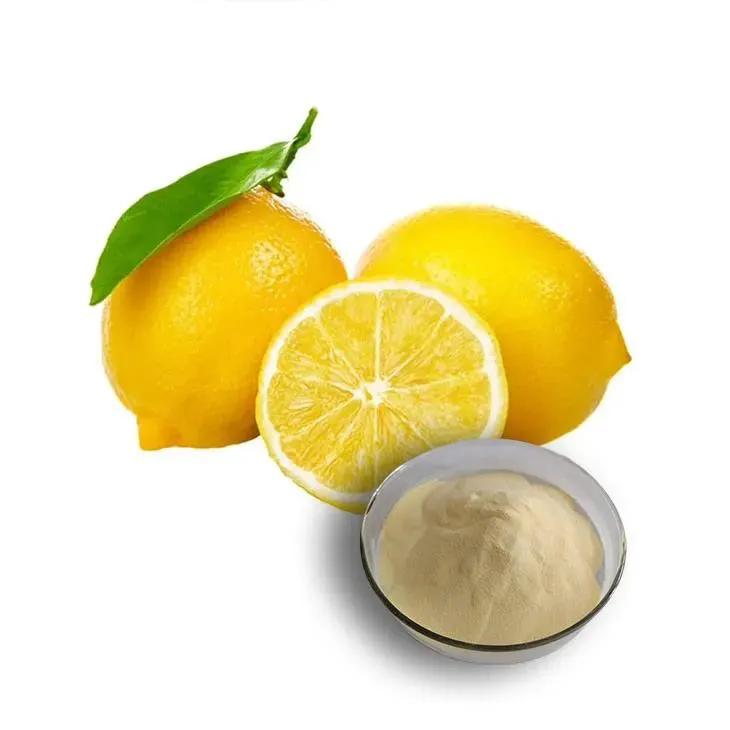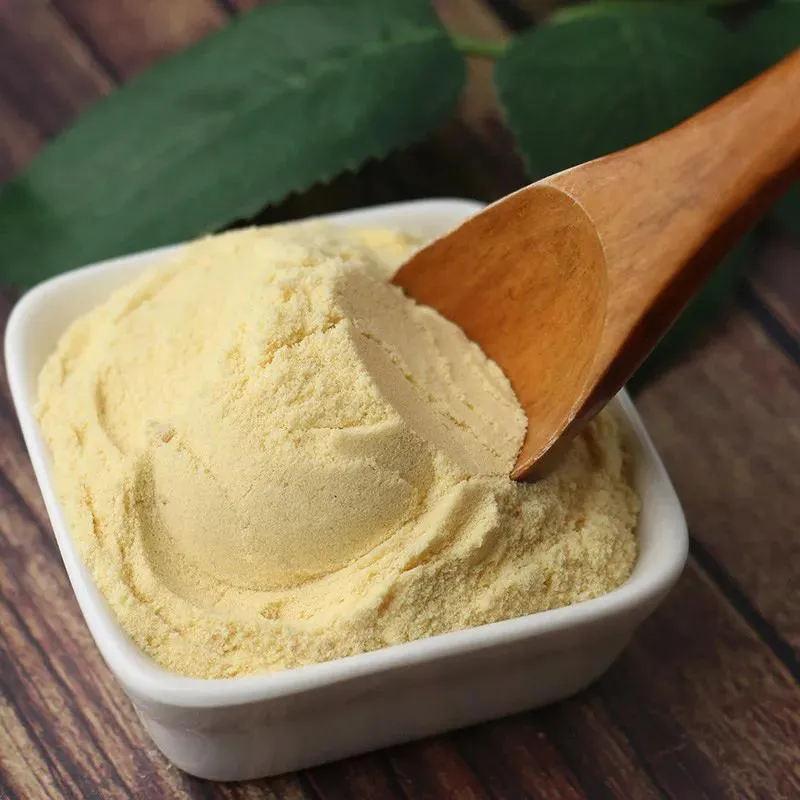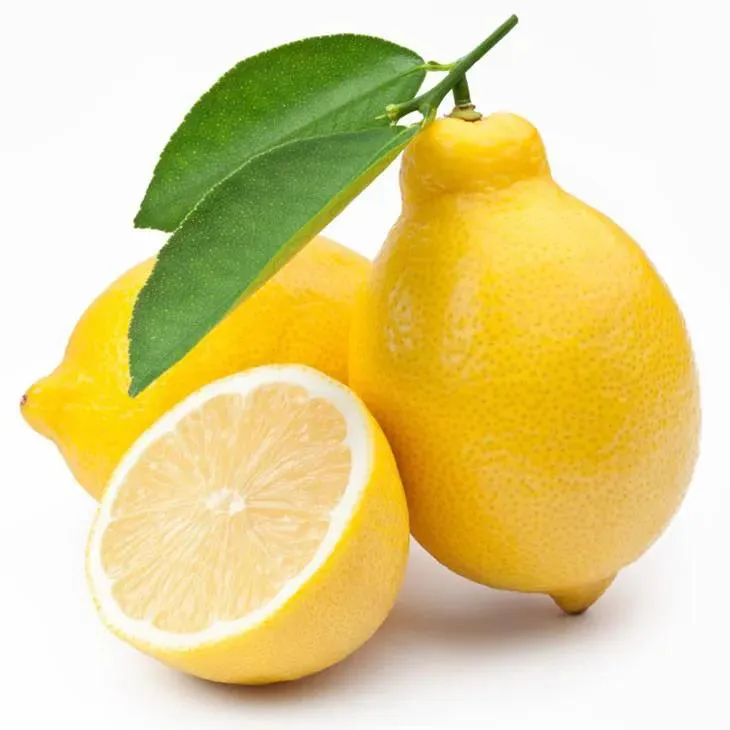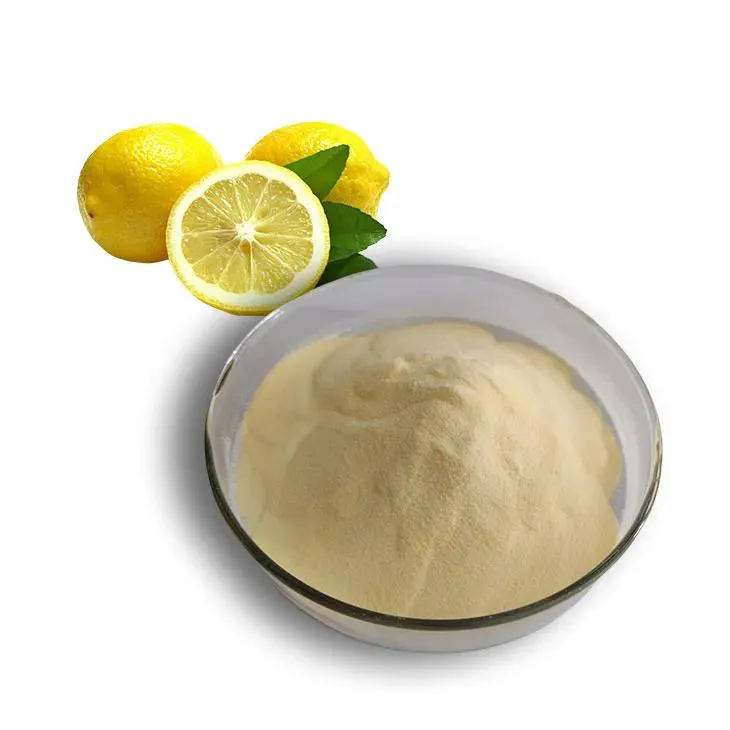- 0086-571-85302990
- sales@greenskybio.com
How to Use Lemon Juice Powder? A Spice in the Culinary World.
2024-12-16

1. Introduction to Lemon Juice Powder
Lemon Juice Powder is a convenient and concentrated form of lemon juice. It is made by dehydrating fresh lemon juice, which removes the water content while retaining the essential flavors and acidity. This powder has a long shelf - life and can be easily stored in the pantry, making it a great alternative to always having fresh lemons on hand.

2. Using Lemon Juice Powder in Different Cuisines
2.1 Mediterranean Cuisine
In Mediterranean cuisine, lemon juice powder can be used to add a bright, citrusy flavor to many dishes. For example, in a Greek salad, instead of squeezing fresh lemon juice over the salad, you can sprinkle a small amount of lemon juice powder. It will provide the same tangy flavor and help to enhance the flavors of the tomatoes, cucumbers, and feta cheese. Lemon juice powder can also be used in marinating fish or chicken for a Mediterranean - style dish. It imparts a lemony flavor that is characteristic of the region's cuisine.
2.2 Asian Cuisine
Asian cuisines, such as Thai and Vietnamese, also benefit from the use of lemon juice powder. In Thai curries, a pinch of lemon juice powder can be added to brighten the flavors. In Vietnamese spring rolls, lemon juice powder can be used in the dipping sauce instead of fresh lemon juice. It adds a zesty flavor that complements the fresh herbs and vegetables in the spring rolls.
2.3 American Cuisine
In American cuisine, lemon juice powder can be used in a variety of ways. For example, it can be added to barbecue sauces to give them a tangy kick. It can also be used in salad dressings, either on its own or in combination with other ingredients like olive oil, vinegar, and mustard. In lemon - flavored desserts like lemon bars or lemon meringue pie, lemon juice powder can be a substitute for fresh lemon juice, especially when fresh lemons are not readily available.

3. Lemon Juice Powder as a Substitute for Fresh Lemon Juice
3.1 Concentration Adjustment One important thing to note when using lemon juice powder as a substitute for fresh lemon juice is the concentration. Since it is a concentrated form, you need to use less of it. A general rule of thumb is that for every 1 tablespoon of fresh lemon juice, you can use about 1/2 to 3/4 teaspoon of lemon juice powder. However, this may vary depending on the brand and the specific application.
3.2 Flavor Profile While lemon juice powder can replicate the tangy flavor of fresh lemon juice, there are some subtle differences. Fresh lemon juice has a more vibrant and fresh - cut flavor due to the presence of volatile compounds that are lost during the dehydration process. However, lemon juice powder still offers a strong lemon flavor and can be a great alternative in situations where fresh lemons are not accessible or when you want a more consistent flavor in your cooking.

4. Using Lemon Juice Powder in Baking
4.1 Incorporating into Batter In baking, lemon juice powder can be easily incorporated into batters. For example, in a lemon cake recipe, you can substitute fresh lemon juice with lemon juice powder. Add the powder along with the other dry ingredients such as flour, sugar, and baking powder. Make sure to adjust the amount according to the concentration guidelines mentioned earlier. The lemon juice powder will add a lemony flavor to the cake, making it a delicious treat.
4.2 Glazes and Icings Lemon juice powder is also great for making glazes and icings. In a lemon glaze for a donut or a loaf of bread, combine the lemon juice powder with powdered sugar and a small amount of water or milk to create a smooth and tangy glaze. For icings, it can be added to buttercream or cream cheese icing to give a lemony zing.

5. Tips for Storing and Using Lemon Juice Powder
5.1 Storage Store lemon juice powder in a cool, dry place, preferably in an airtight container. Exposure to moisture can cause the powder to clump together, so it is important to keep it dry. If stored properly, it can last for several months to a year.
5.2 Measuring When measuring lemon juice powder, it is best to use a dry measuring spoon. Level off the spoon to ensure accurate measurement. Since the powder is concentrated, even a small amount can have a significant impact on the flavor of your dish.
5.3 Combining with Other Ingredients Lemon juice powder can be combined with other spices and seasonings to create unique flavor profiles. For example, it can be paired with thyme and rosemary in a marinade for chicken, or with cinnamon and nutmeg in a lemon - spiced dessert. Experiment with different combinations to discover new and exciting flavors.
6. Conclusion
Lemon juice powder is a versatile and convenient ingredient in the culinary world. Whether you are exploring different cuisines, looking for a substitute for fresh lemon juice, or adding a lemony flavor to your baking, it has much to offer. By understanding how to use it properly, you can enhance the flavors of your dishes and create delicious and unique culinary creations.
FAQ:
Q1: Can lemon juice powder be used directly in cooking?
Yes, lemon juice powder can be used directly in cooking. It can be added to marinades, salad dressings, or used to season meats and vegetables. Just like fresh lemon juice, it imparts a tangy flavor, but it has the advantage of being more convenient and having a longer shelf life.
Q2: How do you use lemon juice powder as a substitute for fresh lemon juice?
When using lemon juice powder as a substitute for fresh lemon juice, a general rule is to mix 1 part lemon juice powder with about 4 parts water to approximate the consistency and flavor of fresh lemon juice. However, you may need to adjust the ratio according to your personal taste preferences and the specific recipe requirements.
Q3: In which cuisines is lemon juice powder commonly used?
Lemon juice powder is commonly used in Mediterranean cuisines, where the tangy flavor of lemon is a staple. It is also used in Middle Eastern cuisines for flavoring kebabs, stews, and various rice dishes. In addition, it can be found in some Asian cuisines, such as in certain salad dressings or as a seasoning for seafood.
Q4: Can lemon juice powder be used in baking?
Yes, lemon juice powder can be used in baking. It can add a lemony flavor to cakes, cookies, and muffins. When using it in baking, it is important to ensure that it is well - mixed with the other ingredients to evenly distribute the flavor. You may need to adjust the amount according to the desired intensity of the lemon flavor.
Q5: How should lemon juice powder be stored?
Lemon juice powder should be stored in a cool, dry place, preferably in an airtight container. This helps to maintain its freshness and prevent it from absorbing moisture, which could cause clumping or a loss of flavor over time.
Related literature
- The Complete Guide to Using Citrus Powders in Cooking"
- "Lemon Juice Powder: A Hidden Gem in the Spice Rack"
- "Versatile Uses of Lemon - related Powders in Culinary Arts"
- ▶ Hesperidin
- ▶ citrus bioflavonoids
- ▶ plant extract
- ▶ lycopene
- ▶ Diosmin
- ▶ Grape seed extract
- ▶ Sea buckthorn Juice Powder
- ▶ Beetroot powder
- ▶ Hops Extract
- ▶ Artichoke Extract
- ▶ Reishi mushroom extract
- ▶ Astaxanthin
- ▶ Green Tea Extract
- ▶ Curcumin Extract
- ▶ Horse Chestnut Extract
- ▶ Other Problems
- ▶ Boswellia Serrata Extract
- ▶ Resveratrol Extract
- ▶ Marigold Extract
- ▶ Grape Leaf Extract
- ▶ blog3
- ▶ blog4
- ▶ blog5
-
Pure 85% Tomentil Extract.
2024-12-16
-
Selenium yeast
2024-12-16
-
Green Tea Extract
2024-12-16
-
Red Vine Extract
2024-12-16
-
Polygonum Cuspidatum Extract
2024-12-16
-
Apricot Powder
2024-12-16
-
Tamarind extract powder
2024-12-16
-
Alfalfa Meal
2024-12-16
-
Oyster Mushroom Extract Powder
2024-12-16
-
Sea buckthorn oil
2024-12-16
-
Bayberry Extract
2024-12-16





















